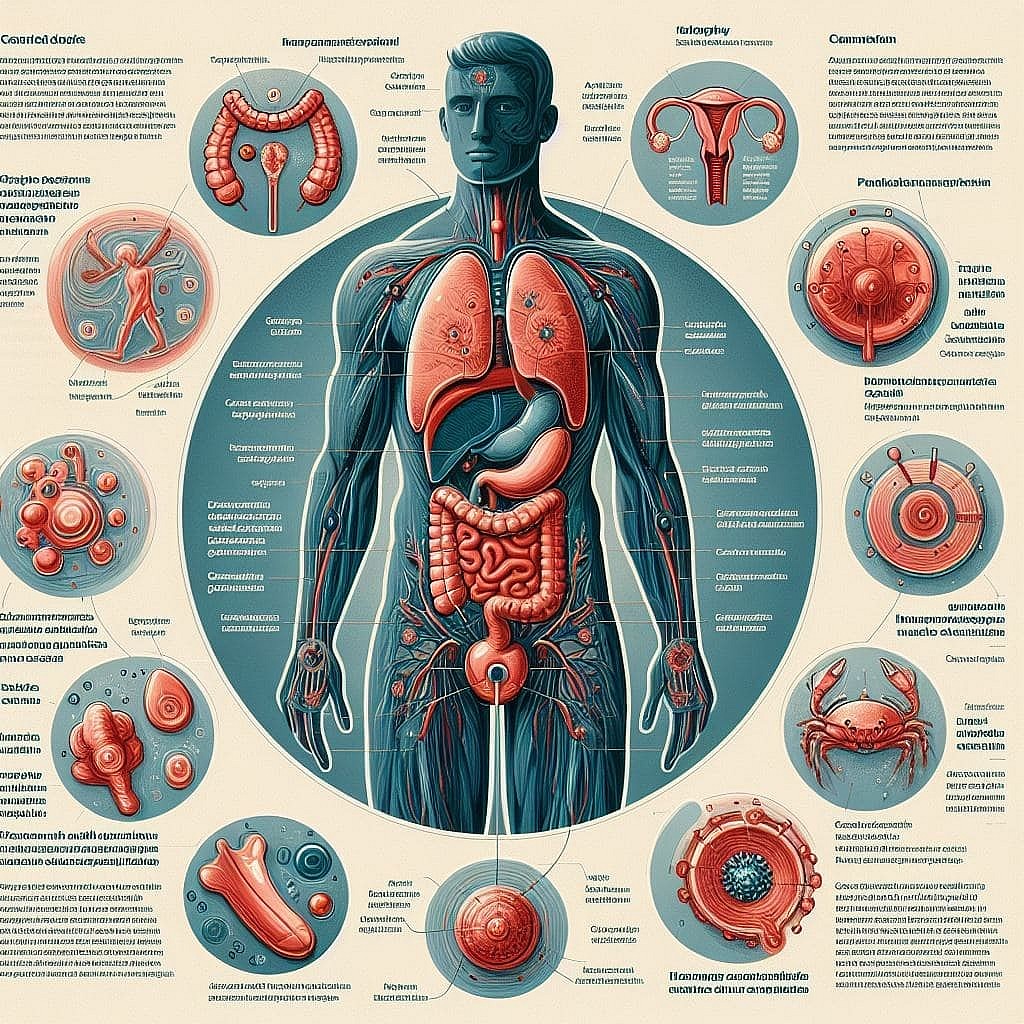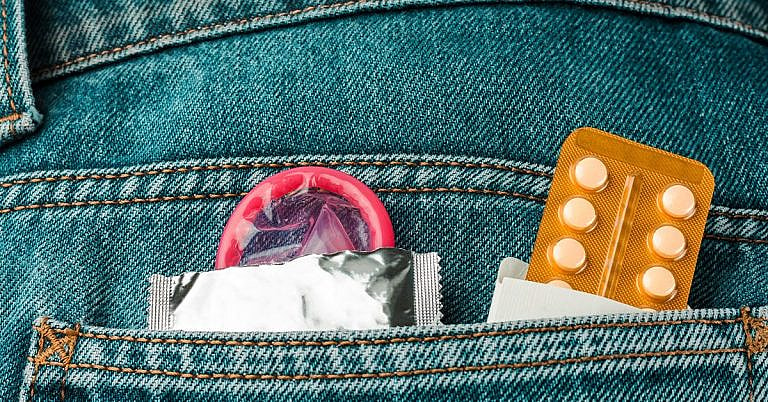Is there a link between COVID-19 and erectile dysfunction?
COVID-19 can have wide-reaching effects on your body, including blood vessel and nerve damage and brain injury. These effects could interfere with your body’s ability to develop or maintain an erection.
COVID-19, which stands for coronavirus disease 2019, develops from the virus SARS-CoV-2.
Despite several studies looking into COVID-19, long COVID, and erectile dysfunction (ED), experts still don’t know whether a conclusive link exists. However, research on the topic has grown since the start of the COVID-19 pandemic.
Some studies suggest that COVID-19 may increase a person’s risk of ED. Other research hasn’t found a strong enough relationship between the two.

What does the research say about COVID-19 and erectile dysfunction?
Some studies have found a link between COVID-19 and ED. One, published in 2023, found that a prior SARS-CoV-2 infection linked to a 27% increased risk of developing ED.
A 2021 studyTrusted Source involving almost 500,000 people also concluded that COVID-19 was significantly linked to ED.
Others found an increased risk, too. But some tended to be small in scale.
COVID-19 may also affect people with preexisting ED, with researchers finding that the virus can worsen ED.
Why might COVID-19 affect erectile function? Well, there are a few potential answers.
Endothelial cell damage
Endothelial cells line blood vessels. COVID-19 can damage these cells and stop the lining from expanding and contracting.
This stiffness can affect blood flow to your penis, which is necessary for getting and maintaining an erection.
The virus can also interfere with pathways that your body uses during erections.
It’s this damage that experts believe to be the most likely reason for COVID-19’s link to ED.
Neurological effects
COVID-19 can have wide-reaching effects on your body, including neurological (brain and nerve) ones.
Brain injury from the virus could affect nerves that are necessary for an erection.
Psychological effects
Another factor to consider is how COVID-19 and ED affect mental health. Some research links COVID-19 to several mental health conditions that can play a role in developing ED.
Some experts have found that the higher risk of ED in people with a history of COVID-19 could be due to stress, anxiety, or depression associated with the virus.
Other health conditions
Certain health conditions can make people with COVID-19 more at risk of developing complications. Other medical conditions also have ED on their symptom lists.
So, other health conditions may make someone with COVID-19 more likely to develop ED.
One small 2022 study found that people with diabetes, heart disease, and other conditions had a higher risk of ED after developing COVID-19.
What does the research say about long-term COVID and erectile dysfunction?
Long-term COVID can affect multiple bodily systems. So, ED could be a complication.
But research into the topic is limited, including whether a link exists and what might cause it.
One larger 2022 studyTrusted Source did find that erectile function improved after 3 months of developing COVID-19.
However, high levels of ED were still present during the third month of recovery, particularly in people over 40 years old or in those with major depression.
A different 2023 study found that ED linked to COVID-19 may improve with time, especially the first year after SARS-CoV-2 infection.
What can you do to help treat erectile dysfunction?
If COVID-19 has contributed to ED, it may improve naturally with time.
Consider making an appointment with a healthcare professional to discuss your symptoms. They can help identify or confirm the underlying cause and make treatment recommendations.
For example, lifestyle changes may result in improvements for some. This could be anything from upping exercise and cutting back on less nutritious foods, smoking, and alcohol to therapy for mental health support.
If you have another underlying health condition that could be contributing to ED, treating this may also help.
Medications also exist. Pills such as sildenafil (Viagra), vardenafil (Levitra, Staxyn), and tadalafil (Cialis) can boost blood flow to your penis.
There’s also an injection called alprostadil (Caverject, Edex, Muse), which you can receive as a penile suppository if preferred to help get an erection.
You may need to try several options before finding one that works.
Surgery to insert a prosthetic implant is also an option if the others don’t work for you.
Other frequently asked questions
If you already have erectile dysfunction, are you more likely to develop COVID-19?
Due to the lack of research, it’s hard to say.
One 2021 study did find that people with ED were more likely to experience COVID-19. However, that doesn’t necessarily mean that you may have a higher risk of developing COVID-19 if you have ED.
One study isn’t enough information to draw any solid conclusions.
Can getting vaccinated against COVID-19 help prevent related erectile dysfunction?
This is yet another area where no answers are available yet.
A 2022 survey found no link between COVID-19 vaccinations and an increased risk of ED in people ages 45 and older.
But no research exists yet into the opposite relationship.
Theoretically, though, if COVID-19 could increase the risk of ED, then helping protect yourself against it via vaccines could reduce the risk of such complications.
Does your risk for erectile dysfunction increase with subsequent SARS-CoV-2 infections?
There’s no definitive conclusion here yet.
If COVID-19 can make ED more likely to occur, then multiple bouts of COVID may only increase that risk.
How long does COVID-19-related erectile dysfunction last?
Studies have shown different results. One from 2022 found improvement 3 months after the initial SARS-CoV-2 infection, whereas another from 2023 noted ED getting better the first year after developing COVID-19.
Treatment may still be necessary in some cases.
Frequently Asked Question’s About “Is There a Link Between COVID-19 and Erectile Dysfunction?”
1. Is there a definitive link between COVID-19 and erectile dysfunction (ED)?
No, there isn’t a definitive link yet, but some studies suggest an increased risk of ED in people who have had COVID-19 [2]. More research is needed to confirm a causal relationship.
2. What are some reasons why COVID-19 might be linked to ED?
- Endothelial cell damage: COVID-19 can damage the cells lining blood vessels, affecting blood flow to the penis necessary for an erection [3].
- Neurological effects: The virus may impact nerves involved in erections [4].
- Psychological effects: Stress, anxiety, or depression associated with COVID-19 could contribute to ED [5].
- Other health conditions: Certain health problems that increase the risk of ED complications might be more likely to develop after COVID-19 [6].
3. How does long-term COVID relate to ED?
Long-term COVID can affect various body systems, and ED could be a potential complication, but research is limited on the link and its cause [7]. Some studies suggest ED might improve over time after the initial infection [8].
4. How is ED treated after COVID-19?
- ED may improve on its own over time [9].
- Consulting a healthcare professional is recommended to identify the cause and discuss treatment options [9].
- Treatment options include lifestyle changes (exercise, diet), therapy for mental health, medications, injections, or implants [9].
5. FAQ about COVID-19, ED, and vaccinations
- Does having ED increase the risk of getting COVID-19? There isn’t enough evidence to say for sure [10].
- Do COVID-19 vaccines increase the risk of ED? No link has been found between vaccination and ED [11].
- Does the risk of ED increase with repeated COVID-19 infections? There’s no clear answer yet, but it’s possible [12].
- How long does COVID-19-related ED last? Studies show varying timeframes, with some suggesting improvement within 3 months and others indicating improvement within the first year [8, 9]. Treatment may still be needed.
The bottom line
The available research shows a person with COVID-19 might be 2.64 times more likely to develop ED. This could be due to the physical and psychological effects the virus can have on your body.
COVID-19 could also worsen existing ED symptoms. More large-scale studies are necessary to determine whether a relationship between the two exists.
**Is there a link between COVID-19 and erectile dysfunction?**
**Question:** Has COVID-19 been linked to erectile dysfunction (ED)?
**Answer:** Research suggests a potential association between COVID-19 and ED. Studies have found that men who have had COVID-19 may experience a higher prevalence of ED symptoms.
**Keywords:** COVID-19, erectile dysfunction, ED, sexual health
**Question:** What are the possible causes of ED after COVID-19?
**Answer:** The exact mechanisms linking COVID-19 to ED are still being investigated. However, potential causes include:
* **Endothelial damage:** COVID-19 can damage the endothelium, the lining of blood vessels, which can affect blood flow to the penis.
* **Hormonal imbalances:** COVID-19 may alter hormone levels, such as testosterone, which can affect erectile function.
* **Psychological factors:** The stress and anxiety associated with COVID-19 can also contribute to ED.
**Keywords:** COVID-19, erectile dysfunction, ED, endothelial damage, hormonal imbalances, psychological factors
**Question:** When should I seek medical help for ED after COVID-19?
**Answer:** If you experience ED or other changes in your sexual health after having COVID-19, it’s important to seek medical evaluation. Your doctor can perform a physical exam, ask about your symptoms, and recommend appropriate treatment options.
**Keywords:** COVID-19, erectile dysfunction, ED, medical evaluation, treatment options
**Question:** Are there any risk factors for ED after COVID-19?
**Answer:** Certain factors may increase the risk of ED after COVID-19, including:
* **Severe COVID-19 infection:** Those who have had severe COVID-19 are more likely to experience ED symptoms.
* **Underlying health conditions:** Men with pre-existing health conditions, such as diabetes or heart disease, may have a greater risk of ED after COVID-19.
* **Older age:** Older men are at higher risk for ED in general, and this may be exacerbated by COVID-19 infection.
**Keywords:** COVID-19, erectile dysfunction, ED, risk factors, severe infection, underlying health conditions, older age
**Question:** Can ED after COVID-19 be treated?
**Answer:** Yes, ED after COVID-19 can be treated. Treatment options may include:
* **Lifestyle modifications:** Reducing stress, exercising regularly, and maintaining a healthy diet can improve overall health and erectile function.
* **Medications:** Medications such as phosphodiesterase-5 inhibitors (e.g., Viagra, Cialis) can improve blood flow to the penis and facilitate erections.
* **Erectile aids:** Devices such as vacuum erection devices or penile implants can assist with ED.
**Keywords:** COVID-19, erectile dysfunction, ED, treatment, lifestyle modifications, medications, erectile aids








I would like to add that COVID-19 is a new virus and there is still much to be learned about its effects on the body. I would recommend that anyone who is experiencing erectile dysfunction after having COVID-19 see a doctor to rule out any other potential causes.